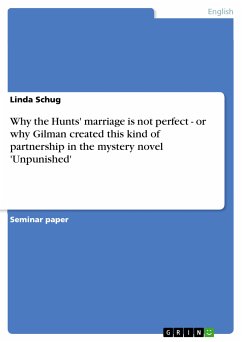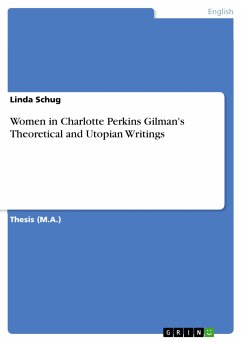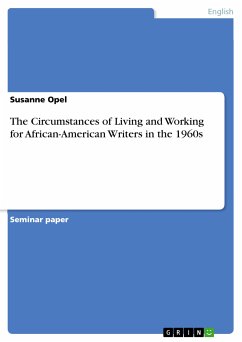Seminar paper from the year 2002 in the subject American Studies - Literature, grade: 2,7, University of Frankfurt (Main), course: Women Writers in the 19th century, language: English, abstract: I. Introduction In the conclusion to Feminist Fiction, Anne Cranny-Francis (compare to 201-202) brings up the question: How can a feminist use the genre of detective fiction which seems superficially to be about detection and revelation, but which is ideologically about concealment and mystification? Charlotte Perkins Gilman made one of the earliest attempts in 1929 out of "feminist despair at what had become of her society and the movements to build a new one from it" (Robinson 276). "She wrote a novel, a spirited novel in a popular genre, the murder mystery, that would encapsulate her vision of feminism for the new times. The idea, this time, was not so much to hurl feminism into the jaws of post-feminism as to pry open those jaws and slip in a sugar-coated pill" (Robinson 277). On the one hand, Unpunished has a feminist message about domestic abuse and marital rape. On the other hand, it contains a husband-wife detective team, common stock characters since 1913 (compare to G & K 101/103), not a single woman detective or at least a professional partnership as one could have expected. Creating this unequal couple, it could be said that Gilman adopted the conventions of detective fiction. First of all, I am going to summarize the history of detective fiction and fictional detectives created by women writers to demonstrate the prevailing conventions of the genre and the way these are converted in the book. I shall confine myself to a consideration of the detective couple Bessie and Jim Hunt disregarding their rival sleuth Gus Crasher. According to William Aydelotte, conventions are the elements that make detective stories popular because they correspond to wish-fulfillment fantasies and therefore describe the readers and their unmotivational drives (compare to 307-308). This theory appears interesting to me with regard to the fact that Gilman′s mystery was not published until 1997. Its underlying fantasies seem to have produced certain sensations that the publishers and the readership were not ready for yet. My thesis is that Gilman used the detective couple to make fun of the conventions of the genre and to show that little has changed for women. In the next section, taking the usage of (nick)names and the partnership presented in the book as examples, I will try to prove this against the background of the society and the gender relations in the nineteenth century and in the 1920s.
Bitte wählen Sie Ihr Anliegen aus.
Rechnungen
Retourenschein anfordern
Bestellstatus
Storno









